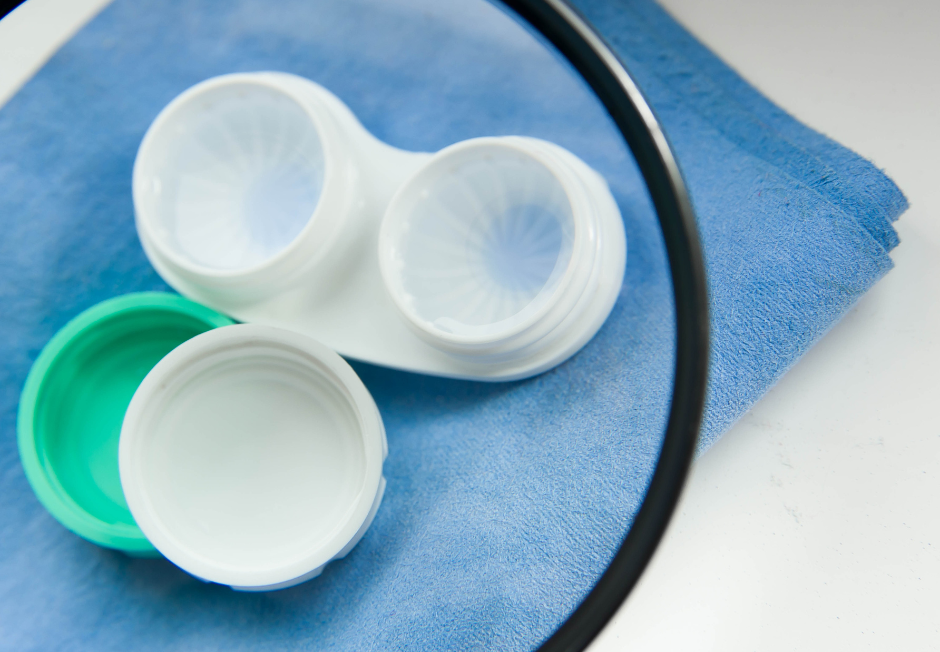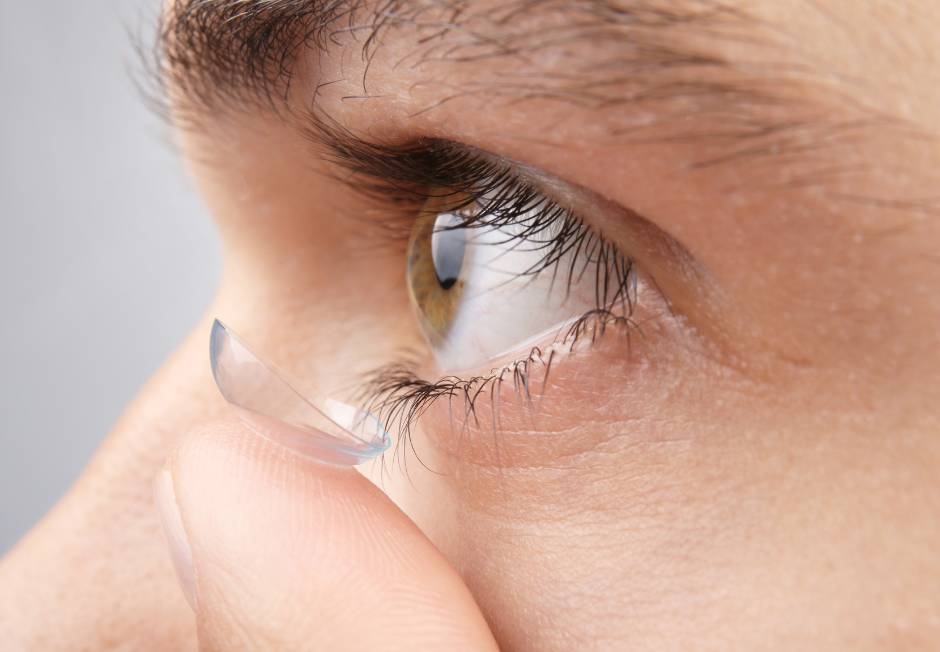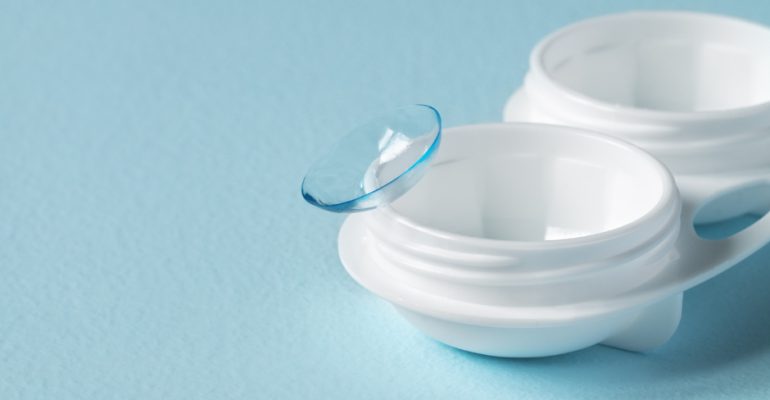There are now more than 3.6 million people in the UK who regularly wear contact lenses. A 2018 report published in association with Euromcontact found that the UK market is larger than any country in Europe, accounting for 22% of wearers.
The report also found that the same year, the contact lens care market grew by 2.3% to £21.4m.
Fast-forward to 2022 and there are concerns being shared with those who wear reusable contact lenses instead of disposable ones. So can reusable contact lenses cause eye infection?
Research conducted at the University College London and Moorfields Eye Hospital revealed that those who wear reusable contact lenses are nearly four times more likely to develop an eye infection, in comparison to those who opt for daily disposable ones.

Acanthamoeba keratitis… What is it?
Acanthamoeba keratitis (AK) is a serious infection of the eye that can cause permanent vision loss. It is caused by microscopic organisms called Acanthamoeba, which are commonly found in bodies of water, including domestic tap water and contact lens solution.
When these organisms attach to the cells of the cornea, they begin a process of destroying the corneal cells and can invade further into the eye, resulting in irreversible damage. Symptoms of Acanthamoeba keratitis include a sensation of something in the eye, eye irritation, pain, eye redness, blurred vision, light sensitivity and excessive tearing.
According to statistics, the condition affects fewer than one in 20,000 contact lens wearers each year in the UK, but a staggering 85 percent of cases of Acanthamoeba keratitis occur in people who wear contact lenses.
The recent study indicates that the number of patients suffering visual impairment per annum from AK could be significantly reduced by people switching to daily disposable lenses, which are more hygienic and less likely to be contaminated with acanthamoeba.
Arran Macleod is a solicitor who specialises in the area of ophthalmology within the clinical negligence claims sector. He says: “As with other infections, the later the diagnosis of AK infection, the worse the outcome is likely to be. Any delay in diagnosis and treatment allows the infection to develop within the eye, ultimately increasing the risk that the infection will permanently affect the patient’s sight.

AK has the potential to have devastating consequences if it occurs, and it is important that contact lens wearers know of the risk of AK, how to minimise their risks for developing AK – by wearing daily disposables, rather than reusable contact lenses – and its symptoms, in order to obtain treatment quickly if the infection occurs.”
Reducing the risk of infections from reusable contact lenses
Though contact lens related infections don’t happen very often, the consequences of the unlikely infection are quite extreme, so it is important that we understand how to reduce the risks. Many people who wear contact lenses do not know that contact lenses and water are a bad combination. This applies to showering, swimming or using a hot tub.
Rachel Smith, optician and Director at Rawlings Opticians in Winchester said in her article Contact Lenses and Water – say NO! to H2O “For contact lens wearers, it is best to remove lenses before showering, swimming or using a hot tub and contact lenses should never be rinsed or stored in water. It is also important to wash and dry hands well before handling lenses and to clean contact lens cases with solution, never water, to avoid contamination. For those who are actively involved in swimming or other water sports and are concerned about being able to see well enough without wearing lenses, prescription goggles may be a good option.”
If your contact lenses do come into contact with water for some reason, remove them from your eyes as soon as possible and throw them away.
Additional sources: The Times
Medical Disclaimer
This article is for information purposes only and should not be considered medical advice. If you or any other person has a medical concern, you should consult with your health care provider or seek other professional medical treatment. Never disregard professional medical advice or delay in seeking it because of something that you have read on this blog, website or in any linked materials.







